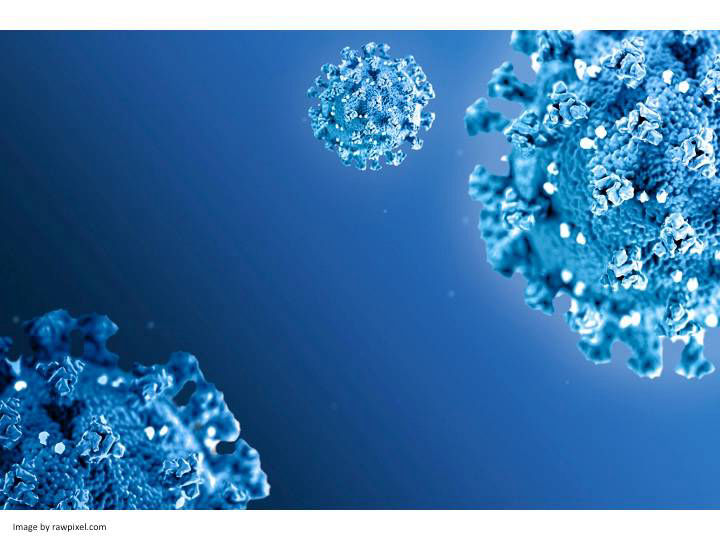
Act One: The Science of SARS-CoV-2
Most of us have only been focusing on Act One of the COVID Pandemic. To date, COVID has reportedly infected some 700 million people and caused 6.9 million deaths worldwide. US has been the biggest casualty with over 100 million infections and more than 1.1 million deaths since the start of the pandemic.
Sars-CoV-2, the virus responsible for the COVID-19 pandemic, is a coronaviruses closely related to SARS. The SARS lineage are zoonotic viruses that live mostly in animals and infect man usually through an intermediary host.
Coronaviruses are very common and are the cause of ~25-30% of the common cold. One of their characteristics is frequent mutation/adaptation resulting in immune evasion and means that this year's cold is a different virus to next year's.
Occasionally, new viruses emerge from animal reservoirs and through selection of mutants may adapt to the human population and become more transmissible, such as SARS-CoV-2. The virus continuously mutates and whilst the majority of these mutations are of no consequence, some offer advantages to the virus, such as the variants from the UK, South Africa, Brazil, California and India. These new variants have a survival advantage, tend to spread more readily, and soon become ubiquitous.
Both the m-RNA (Pfizer and Moderna) and adenoviral vector vaccines (Oxford Astra Zeneca, Sputnik, and J&J) are designed around the spike glycoprotein and are specific for the strain from which the glycoprotein was derived. As the viral glycoprotein changes the vaccines are progressively less specific for the circulating virus necessitating new vaccines and new rounds of vaccination. Moreover, antibody based immunity is relatively short-lived which is one of the reasons coronaviruses such as SARS-CoV-2 cause repeated infections
COVIRIX has set out to identify and repurpose small antiviral molecules that kill all the currently relevant strains of the virus, stop clinical illness and stop transmission. This prevention of viral replication will limit the potential of further harmful mutations.
We are repurposing known drugs that are approved and in clinical use for other diseases. However, to be clinically effective against coronavirus, these drugs need to be repurposed from a traditional oral into a smart inhaled aerosol dose form. Oral delivery requires an increased dose level that cause side effects. By inhalation, we can thereby deliver the safe and effective dose straight to the target cells at the site of infection and avoid such side effects. The drugs are active at a fundamental level of viral replication and will not be blocked by vaccine escape variants.
The COVIRIX team, together with strategic alliances with hospitals, health authorities and major industry participants, believe we can bring this transformative treatment to clinical usage within months at this time of existential crisis.

Act Two: The Long COVID
Recent reports that patients who have recovered from COVID infections are continuing to suffer from a whole range of medical conditions including fatigue, lung damage, some requiring lung transplant, heart and neurological issues some with MS- like symptoms, and generally a range of organ failures. This has been referred to as Long COVID.
A study of the original Alpha (Wuhan) COVID-recovered patients report that a striking 76 percent of all patients reported at least one continuing symptom six months later. The most common lasting problem was fatigue or muscle weakness, reported by 63 percent of all patients. Around a quarter of the cohort also reported sleep difficulties and anxiety or depression. A smaller subset of the cohort completed comprehensive pulmonary testing and more than half displayed persistent chest imaging abnormalities. The degree of ongoing lung damage six months later correlated with the severity of the disease during the patients’ acute phase of hospitalization. https://newatlas.com/health-wellbeing/long-COVID-study-lancet-lasting-symptoms/
A more recent study looking at > 270,000 COVID survivors demonstrates that the increased risk of Long-COVID is related to the severity of the initial infective phase. Furthermore, 1 in 3 COVID survivors has at least one Long-COVID symptom at 3-6 months post recovery. More worrying is that 2 of 5 survivors who had no long COVID features in the initial 3 months post-infection, go on to develop de novo Long-COVID symptoms after the initial 3 months*. https://journals.plos.org/plosmedicine/article?id=10.1371/journal.pmed.1003773/
Most healthcare systems do not treat asymptomatic or mildly symptomatic COVID infected patients to avoid overload of the hospital systems. In many countries, hospitals and ICUs had to operate at full capacity during the 2nd surge and many hospitals still remain short-staffed and vulnerable with the more infectious Omicron variant. The asymptomatic or mildly symptomatic patients continue to be sent home to self-isolate and recover by themselves without medication. Unfortunately, when these patients subsequently develop other health issues due to what is now increasing recognised as Long COVID, medical practitioners are still struggling to understand what the causes are and tend to investigate causes other than Long COVID. This then creates extreme anxiety and frustration among the affected individuals which by estimates could reach up to 110 million Long-COVID sufferers.. All nations will need to have robust post-COVID surveillance programs whilst scientists endeavour to understand the pathophysiology of Long COVID and introduce specific therapies for this rising tide of patients.
Long COVID must be recognized urgently as the second global health crisis by governments and WHO, to manage it clinically and prevent it from becoming a much worse longer-term global health crisis.
We believe that widespread treatment with the COVIRIX anti-viral with its dual anti-inflammatory action, might also protect against Long-COVID.